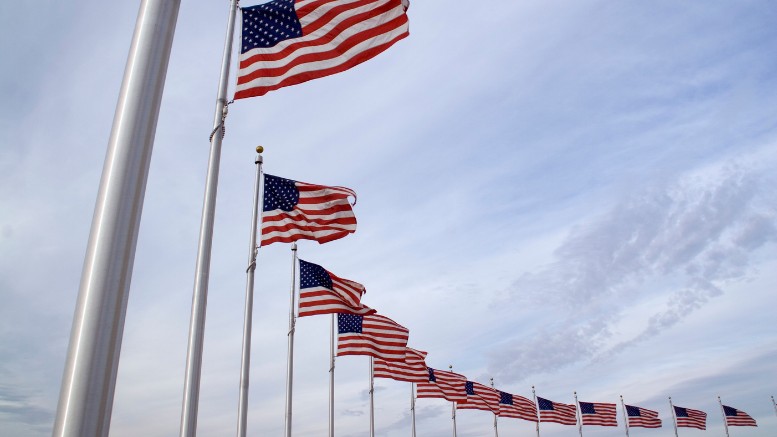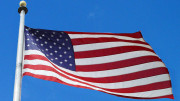Celebrating Norfolk County’s legacy on the 4th of July: A message from William P. O’Donnell
One of the greatest attractions that makes Norfolk County a destination place to live and work is its rich and vibrant history. From the Revolutionary War to the present day, Norfolk County has played a significant role in shaping American history. Norfolk County established in 1793 has come to be known as the “County of Presidents.”
Four of the forty-six presidents of the United States were born right here in Norfolk County: John Adams and John Quincy Adams in a section of Braintree that is now part of Quincy, George H.W. Bush in Milton, and John F. Kennedy in Brookline.
The Norfolk County Registry of Deeds, which turns 248 this June and is the depository of more than 13.1 million land related records, contains a wealth of history. The Registry is responsible for safeguarding the deeds of such Norfolk County notables as the president of the Continental Congress, Nobel Prize winners, the Chairman of the Joint Chiefs of Staff, a renowned Supreme Court justice, the Father of American Landscape Architects, and an educator who is considered to be the Father of Universal Public Education, along with one woman’s remarkable story to overcome adversity, named Helen Keller.
It also contains deeds from the birthplaces of each of the four United States Presidents who lived in Norfolk County. These individuals have left a lasting impact on American history and culture and have each played a role in preserving and strengthening freedom for all Americans.
John Adams was one of our Founding Fathers, and without his contributions, we might not be celebrating the rich history of Norfolk County or for that matter, the United States of America. John Adams served as Vice President to the first President of the United States George Washington and would become the second president of the United States in 1797 serving one four-year term.
“He was also brilliant, warmhearted, humorous and a lifelong talker,” according to his Pulitzer Prize-winning biographer, David McCullough.
Few leaders did as much for freedom and liberty in so many distinguished ways: Adams was the author of the Massachusetts Constitution which was a model for the writing of the U.S. Constitution; he was the Ambassador to Holland, Ambassador to Great Britain, known by some as the father of the U.S. Navy, our first vice-president, and our second President.
John Quincy Adams who was the son of John and Abigail Adams was the sixth President of the United States. President John Quincy Adams was known for his successful negotiation of the Treaty of Ghent, which ended the War of 1812 and solidified America’s independence. His dedication to public service and diplomacy left a lasting impact on the nation.
- “John Quincy Adams was a genuine visionary, with bold plans to enlarge the nation’s moral, scientific, educational, and commercial capacities,” said award-winning historian Robert Sean Wilentz.
John Quincy Adams served as a diplomat, senator, and Secretary of State before becoming president himself. John Quincy Adams was also a strong advocate for abolitionism. His efforts to expand American territory and promote education demonstrate his commitment to freedom and equality for all.
John F. Kennedy became the 35th President of the United States in 1961. President Kennedy was known for his charisma and ability to inspire change. His vision for a better world resonates with people of all backgrounds and continues to impact leaders today.
“There was a heroic grandeur to John F. Kennedy’s administration that had nothing to do with the mists of Camelot,” said renowned journalist David Talbot.
President Kennedy’s address to the nation on June 11, 1963, about the struggles of civil rights and his call to end segregation and discrimination in America inspired a generation to fight for equality and justice for all. His legacy continues to inspire activists and leaders to this day.
George H.W. Bush became the 41st President of the United States in 1989. President Bush was known for his diplomatic skills and ability to navigate complex international relations. His commitment to fostering world peace and stability was a defining characteristic of his presidency. In response to the Iraqi invasion of Kuwait in August of 1990 President Bush personally negotiated the formation of a coalition of 35 countries to restore Kuwaiti sovereignty.
“His (George H.W. Bush) friendship has been one of the great gifts of my life,” said former United States President Bill Clinton. “I cherished every opportunity I had to learn and laugh with him.”
In 1990, President Bush signed into law the Americans with Disabilities Act, which aimed to ensure equal rights and opportunities for individuals with disabilities. His commitment to inclusivity and accessibility helped pave the way for a more equitable society.
The Fourth of July is a time we can come together as Americans and celebrate our country’s founding. We certainly are fortunate to live in the United States of America. I am always struck by the foresight of the words of John Adams in a letter to his wife dated July 3, 1776 about the independence of our nation. “I am apt to believe that it will be celebrated, by succeeding Generations…. It ought to be solemnized with Pomp and Parade…. with Games, Sports, Bells, Bonfires and Illuminations from one End of this Continent to the other from this Time forward forever more.”







Be the first to comment on "Celebrating Norfolk County’s legacy on the 4th of July: A message from William P. O’Donnell"